Nina Gnadig
Outside of the lab, Nina participates in science outreach and teaching activities with BioBus. She also enjoys biking, yoga, running, seeing local shows and checking out new cuisine!
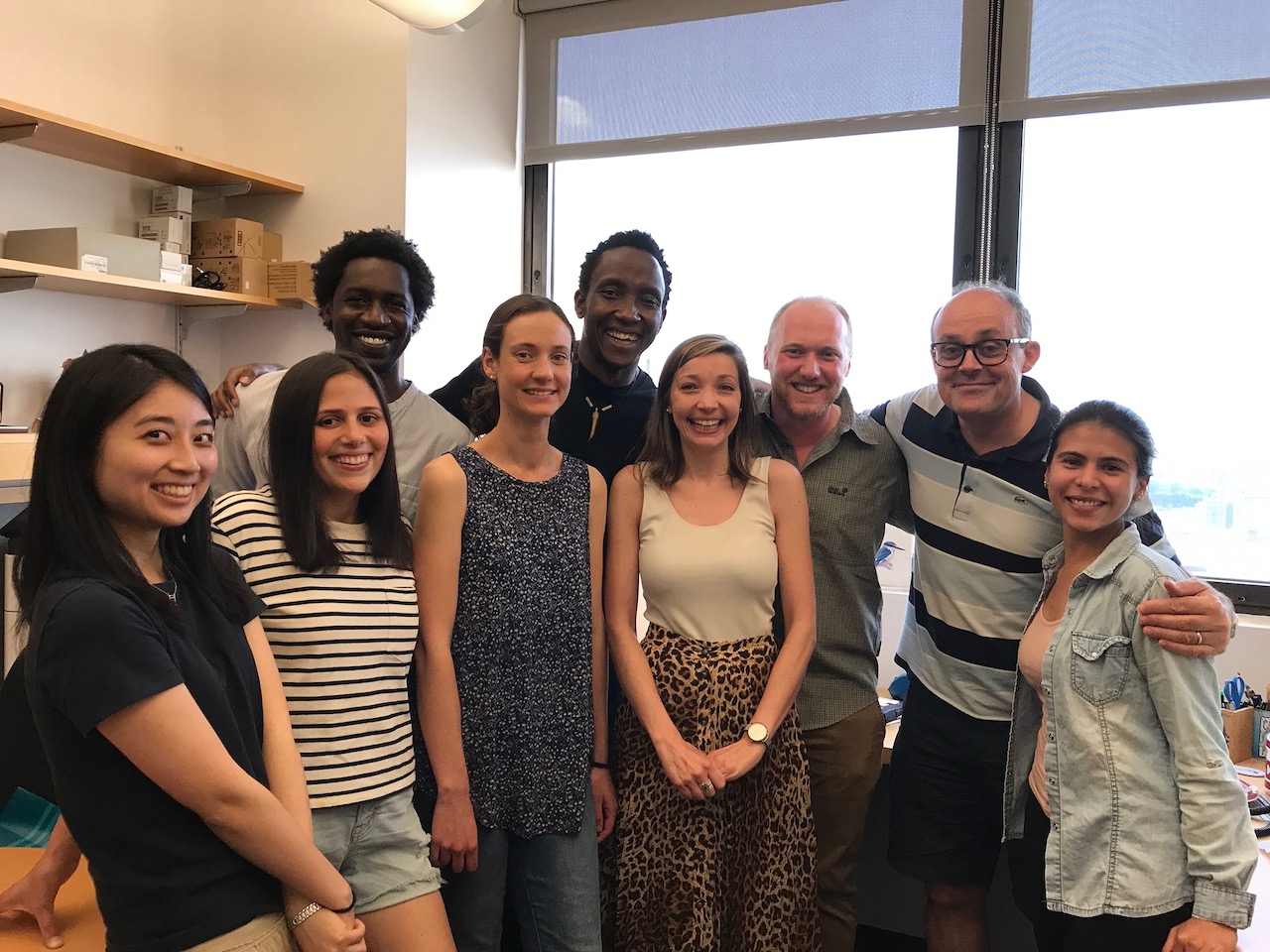
Nina Gnadig, Ph.D., is an Associate Research Scientist at Columbia University where she studies Malaria Drug Resistance.
Nina grew up in Munich, Germany, and shares that it, “couldn’t be more culturally different” from New York. During her undergraduate and graduate career she studied in Berlin and Paris, and, “fell in love with livelier, more diverse cities”. Nevertheless, out of the all the diverse and majestic cities that she has resided in, New York City remains her favorite!
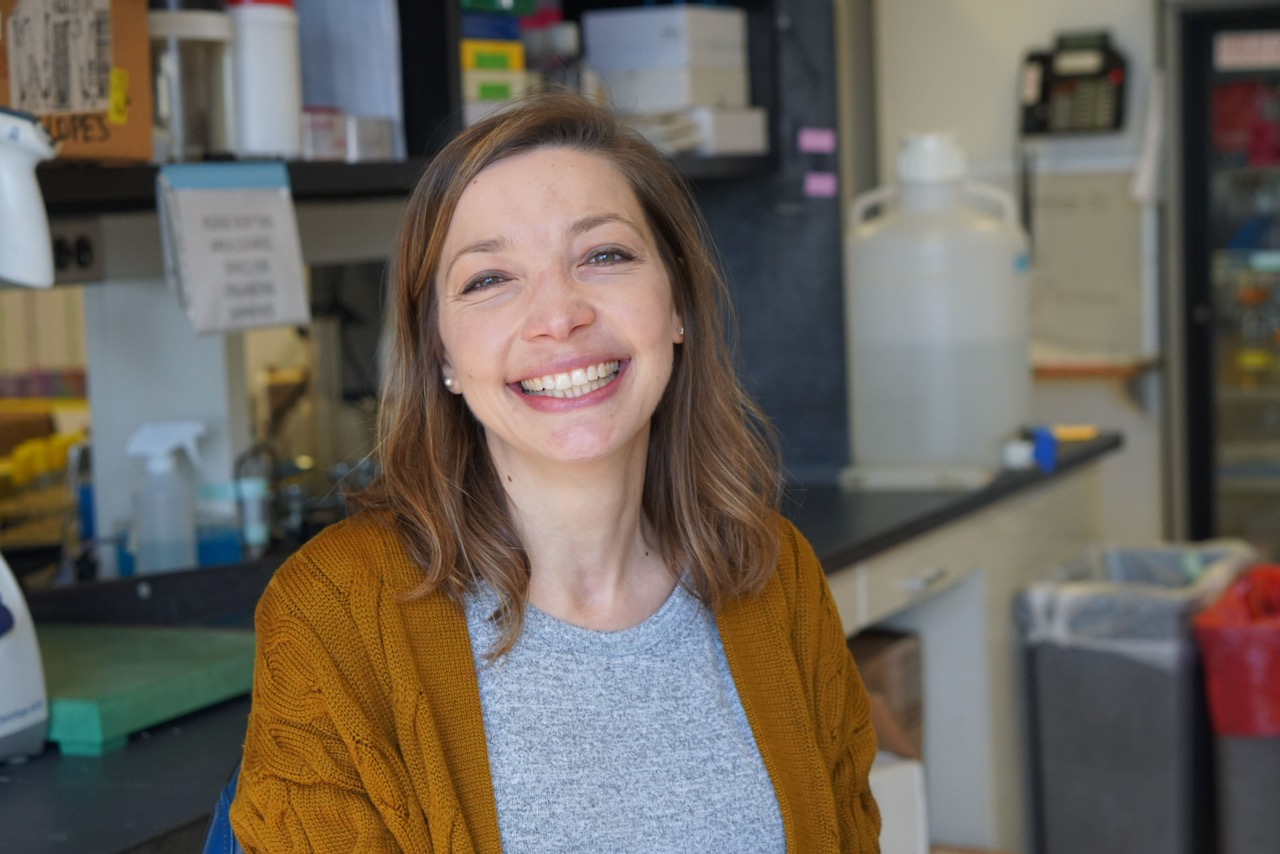
What’s your favorite thing about being a scientist? Did you always want to be a scientist?
“I considered careers both in teaching and photojournalism, although the allure of science won out in the end. For one, you never stop learning, and answering one question, while satisfying, opens the doors to many more questions. There is never a boring day at the lab! But my one single favorite thing about being a scientist is taking beautiful pictures of tiny malaria parasites under the microscope, magnified a thousand times over. So in a way, I did become a photojournalist: one who investigates, reports on – and yes, takes pictures of – infectious parasites that affect humanity across the globe.”
Can you think of a specific time when you found science or pursuing science challenging?
“Switching fields for my second post doc was probably my biggest challenge while pursuing science. After having studied viruses so extensively for years and years, I was suddenly tasked with investigating malaria parasites – so different! There were many times early on when I was afraid I did not have the knowledge or experience to keep going. In those times I would recall a quote my mom used to tell me: “If you think you can or you think you can’t, you’re probably right.” Once I switched my mindset, things really improved!”
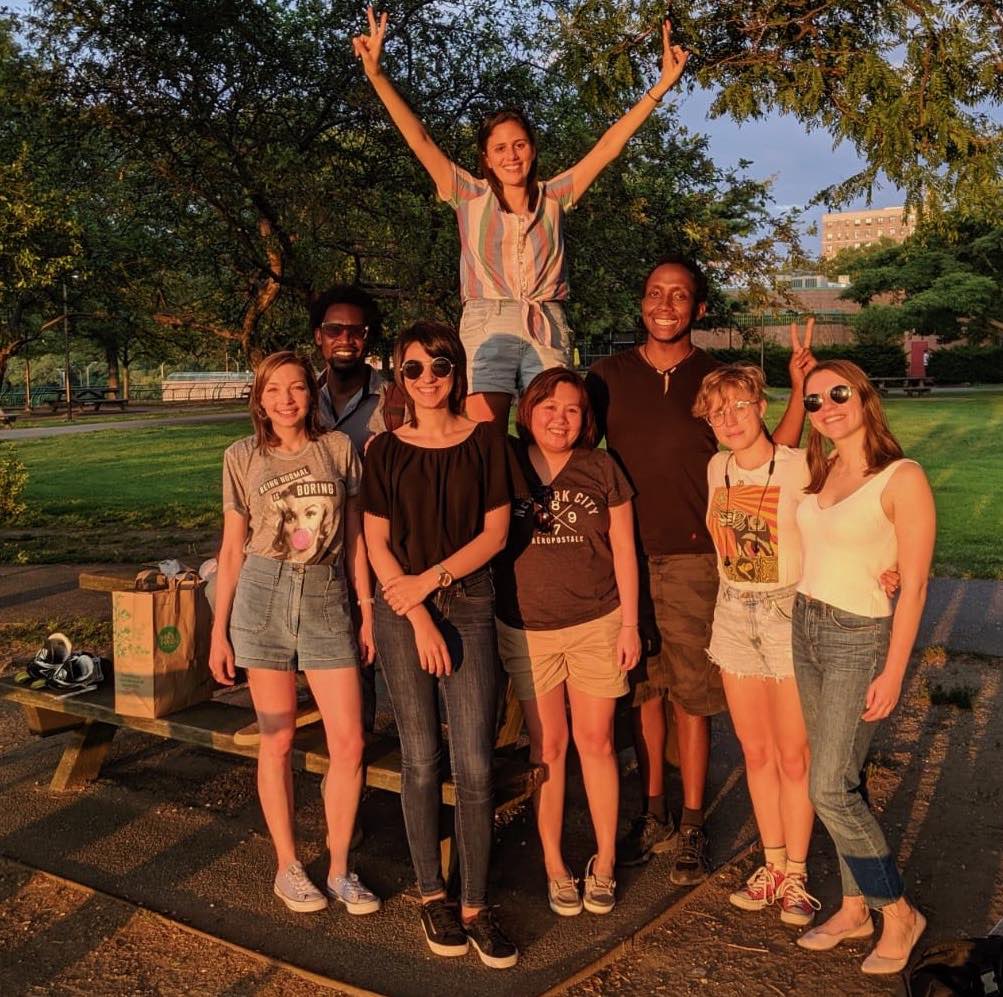
If you could give one piece of advice to young scientists or students, what would it be?
“Science in school can be really fun, but make sure to find time to explore science outside the classroom! Go to outreach activities, meet real scientists and ask about their work, and when you’re old enough, volunteer to do research in a lab. The established scientific knowledge that we get in a classroom is very important, but doing science is about researching questions we don’t have the answers to.”
Have you ever made something explode or otherwise wildly go wrong in lab?
“No explosions, but I did have a couple of accidents in the laboratory. Once I pricked myself with a needle while injecting mice with mutant viruses. It was a modified strain of Coxsackievirus, luckily not very dangerous, but it was scary. Another time I burned a small part of my arm with trichloroacetic acid right above my glove. Lesson learned: always make sure your lab coat fits properly, especially if you have long arms!”
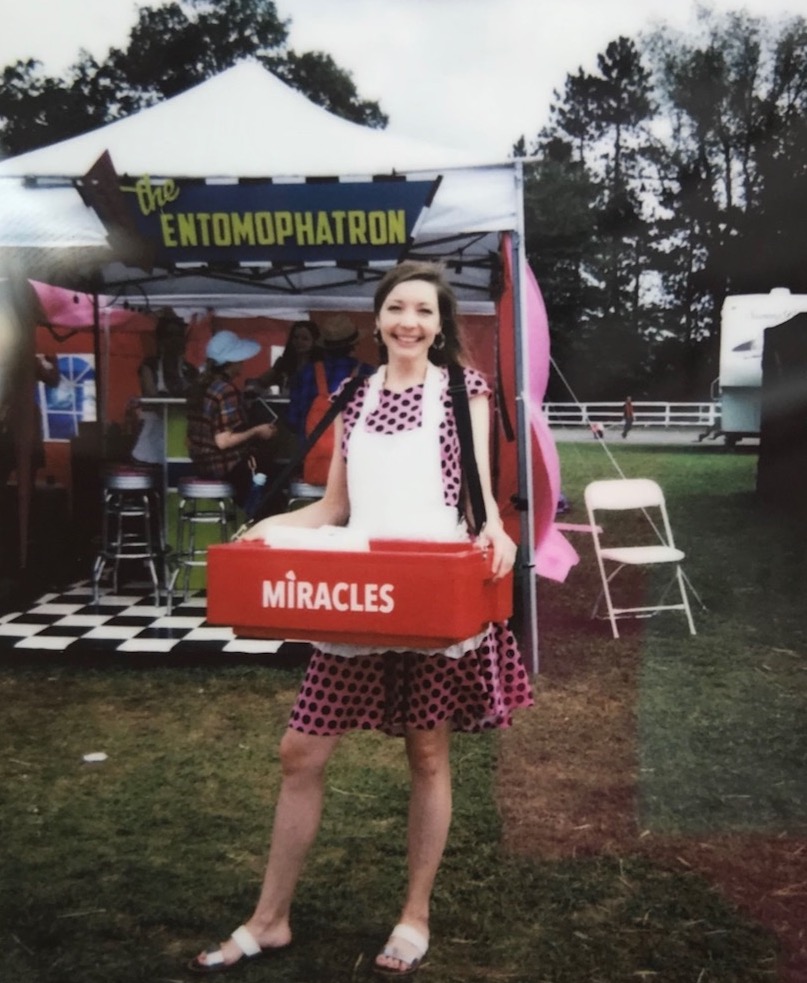
If you hadn’t pursued science, what would you have done instead?
“I probably would have become a photographer. My dream was for a long time to become a member of Magnum photos, a photographic co-operative which supports independent photojournalism. It operates at an intersection of art and storytelling and gives the photographers a lot of freedom to pursue subjects and stories they think are important.”
Why did you decide to come to NYC?
“On my first trip to the city in 2010 I fell in love with the energetic atmosphere and swore to myself I would move here at the first opportunity. Becoming a postdoc made this dream come true!”
What is the funniest/strangest thing you have seen in NYC
“It may sound cheesy, but my husband is the funniest and strangest gift that NYC offered me :).”
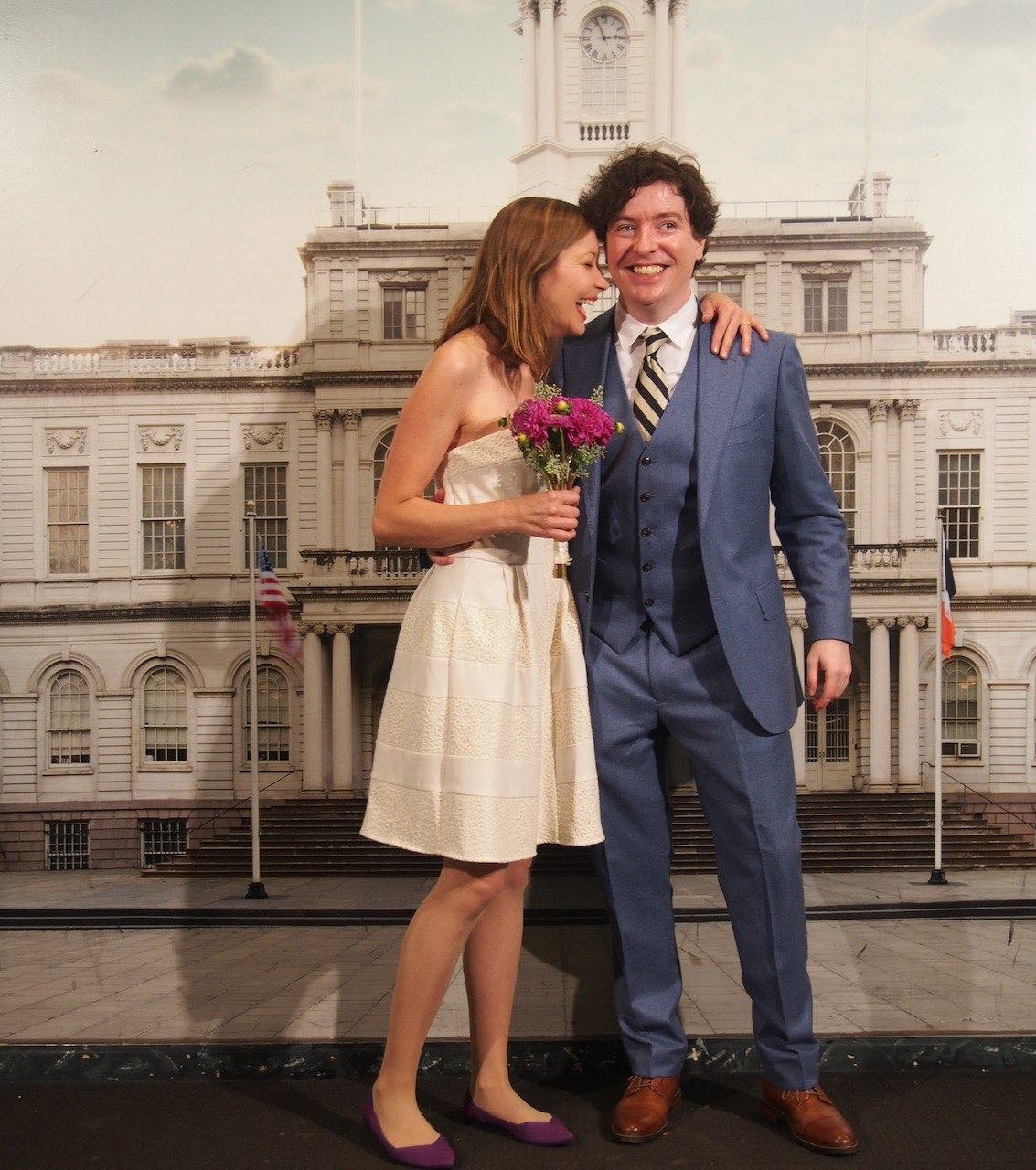
When you are done training, do you plan to stay in NYC?
“I don’t think I will ever be done “training” and learning new things. But yes, for now I plan to stay in NYC! I was just married last year and we hope to build a life in the city we both love.”
If you were a lab animal/model organism, which would you be and why?
“Keeping in mind that I experiment every day on unicellular parasites, I am none too jealous of model organisms.”
If the building was burning, what single item would you grab as you ran out the door and why?
“As cliché as it sounds it would probably be my phone or laptop… given there are no other living creatures around me.”
